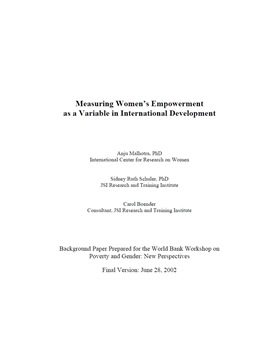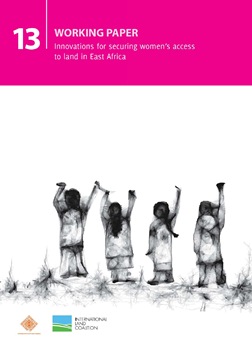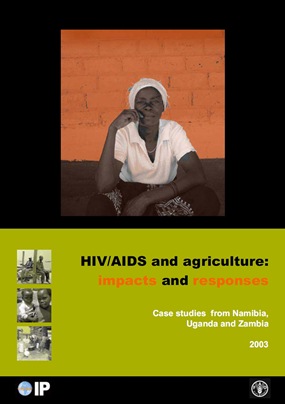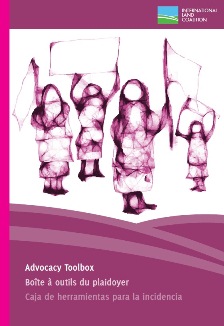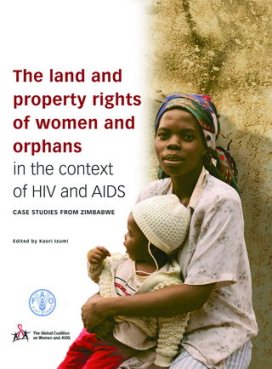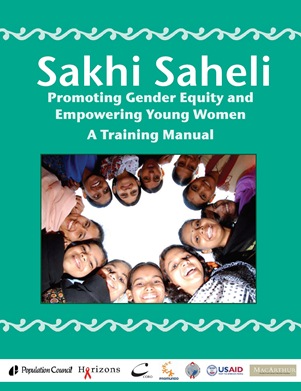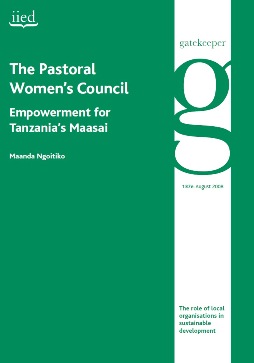Measuring Women’s Empowerment as a Variable in International Development
This paper reviews the literature on women's empowerment and suggests supporting empowerment both as an end in itself and a way to educational, economical and health development. It begins with a discussion of the various conceptual frameworks of women's empowerment, and then examines the ways in which women's empowerment projects have been implemented and measured, ending by stressing the positive development outcomes of women's empowerment.

